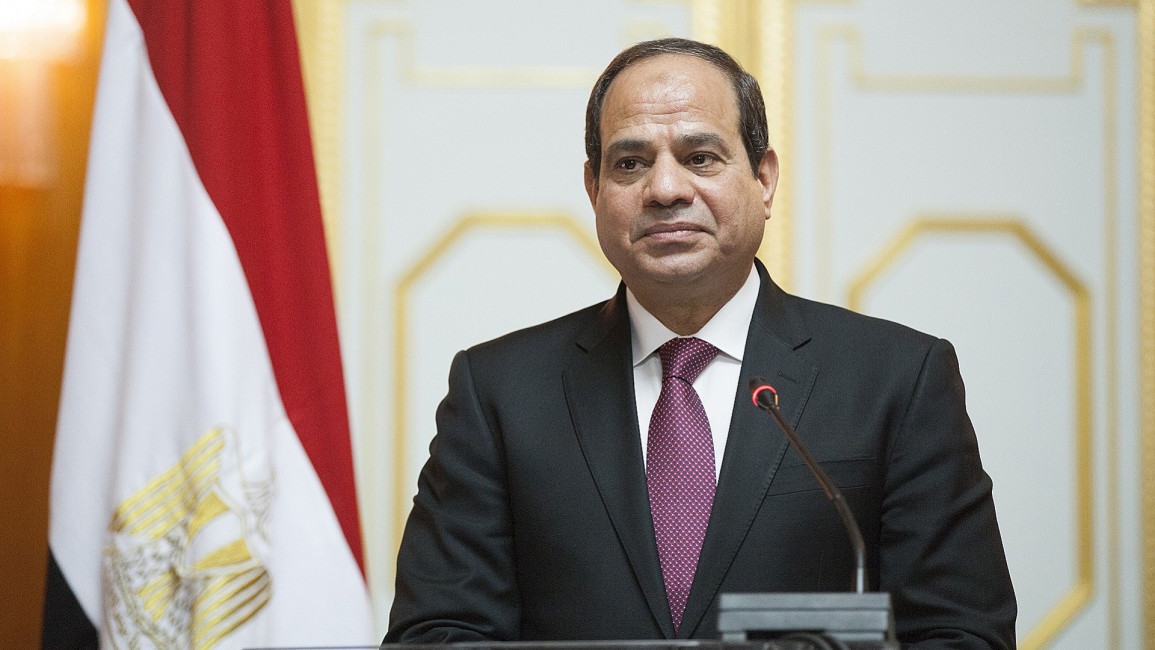Egypt starts voting in first stage of parliamentary elections likely to tighten Sisi's grip
Egyptians began voting Saturday in the first stage of a parliamentary election, a vote that is highly likely to produce a toothless House of Representatives packed with supporters of hardline President Abdel Fattah al-Sissi.
Some 63 million voters out of Egypt's more than 100 million people are eligible to elect 568 of the 596 lawmakers in the lower house, widely seen as a rubber-stamp body for executive policies.
The remaining deputies will be appointed by former army general-turned-president Sisi, whose government has over the past six years silenced any serious political opposition to its rule.
The elections will be held in two phases, with the first covering 14 provinces on Saturday and Sunday. The second, on November 7-8, will cover 13 provinces including the capital Cairo.
Giant billboards and banners have sprung up across the bustling capital Cairo and elsewhere urging Egyptians to head to the polls, while some candidates have released online music video clips to draw support.
Many of the candidates also stood for election five years ago in a political landscape marked by the presence of dozens of parties with little weight and influence on the ground.
The outgoing parliament, elected in 2015, was packed with Sisi supporters and featured only a small opposition bloc known as 25/30.
The new parliament will be the second to convene under Sisi, who took office in 2014 after leading the military ouster of Islamist president Mohamed Morsi.
Run-offs will be held in November, and final results are to be announced in December.
Over 4,000 candidates, believed to be mostly pro-government, are competing for 284 of the 568 seats reserved for individuals. Meanwhile, eight party lists are also running for the remaining 284 seats.
Among the top contenders is a political coalition known as the Unified National List, led by the pro-government Mostakbal Watan, or Nation's Future, Party.
The party, including top businessmen and public figures, has grown since 2014 to become one of Egypt's dominant political forces.
It swept Senate elections in August, and its leader Abdelwahab Abdelrazek was named the upper house's head last Sunday.
The parliament vote is the second to be held since the start of the Covid-19 pandemic which has so far infected more than 105,000 people and killed nearly 6,200 in Egypt.
In August, Egypt held elections for 200 of the 300 seats in the Senate in low-key upper house elections marked by low voter turnout of around 14 percent.
The reinstatement of the upper house - which had been abolished after Morsi's ouster - was among constitutional amendments which included potentially extending Sisi's rule until 2030.
Other changes were to boost the president's control over the judiciary and granting the army even greater influence in political life.
Read more: Would Biden really put a stop to blank cheques for Egypt's Sisi?
Sisi's government has for years launched a severe crackdown on dissent, ensnaring journalists, bloggers, lawyers and intellectuals.
Protests have been effectively banned under a restrictive 2013 law, and a renewable state of emergency has been in place since 2017.


![President Pezeshkian has denounced Israel's attacks on Lebanon [Getty]](/sites/default/files/styles/image_684x385/public/2173482924.jpeg?h=a5f2f23a&itok=q3evVtko)



 Follow the Middle East's top stories in English at The New Arab on Google News
Follow the Middle East's top stories in English at The New Arab on Google News


